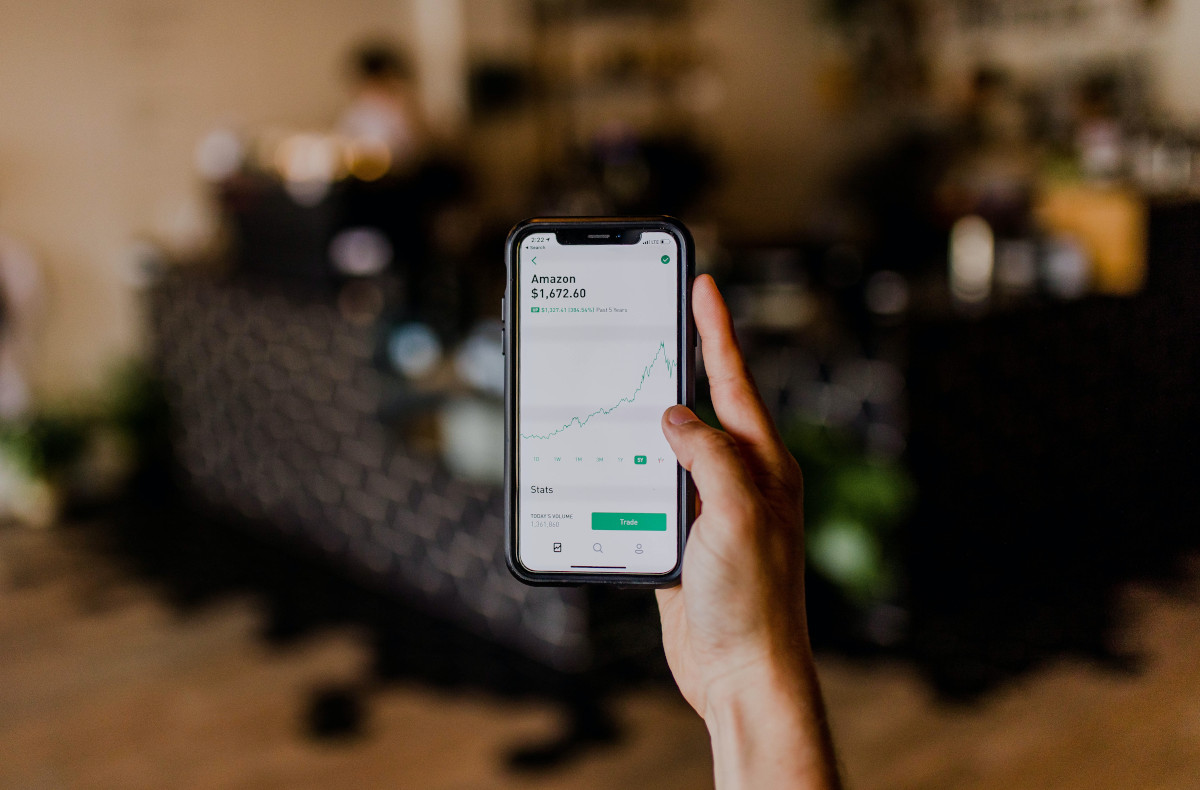When you purchase options contracts, you’re making an educated guess on how you expect the underlying stock in question to perform in the future.
Maybe you’ve purchased a call option and are hoping the stock in question rises in price so that you can then purchase it at a discount. On the other hand, perhaps you’ve bought a put option and are banking on stock price dropping – so you can then sell the stock at a premium.
Either way, you have questions about how your strategy – and the options market as a whole – influences stock prices. Do options affect stock price? And if so, how do options affect stock price?
While technically there is no direct correlation between your options contract and the price of that underlying stock in question, there is something to be said about market sentiment as it pertains to options. And in this quick article, we’ll explain what that relationship is and how you can use it to your advantage when trading options contracts. First – let’s go over the basics of stock option prices.
Featured Courses:
The Basics of Stock Option Prices
If you haven’t already read our guide to trading options for beginners or our article on how stock options work, you may not have a full understanding of how stock options prices – or the strike price – work.
Essentially, your purchase of an options contract gives you the right to buy or sell an underlying asset (in this case, a stock) at a predetermined price before a pre-determined date. There are also pre-determined quantities of stock (or lots) to be aware of. But for the sake of this conversation, we want to focus on the strike price.
The strike price is the price you are able to either buy or sell the underlying stock at should you decide to exercise the stock option. It influences whether your contract ends up in the money or out of the money. And to illustrate just how important it is, let’s take a look at two examples below.
Say you purchase a call options contract with a strike price of $100. That means you are hoping the underlying stock in question will rise in price above $100 – the higher, the better. The reason being you’re able to then purchase the stock in question at the strike price. So if the stock jumps to $140 over the next six months and you purchased a contract for 100 shares, you can earn an impressive profit of $4,000.
On the other hand, say you purchase a put options contract for the exact same stock with the same timeline and lots. In this case, you’d want the stock price to fall under the strike price so you can purchase shares at a discount. If that stock were to fall $40 in price over the next six months instead of a rise in value, you still stand to gain that same $4,000 profit.
Now, determining the ideal strike price for your contract is key – as you can see from the examples demonstrated above. You want the strike price to be as close to the current value of the stock as possible so your likelihood of getting in the money is higher. There is also the time factor to consider – another moving part that makes options trading a bit more complicated than traditional swing trading for beginners. But we can teach you the best way to learn options trading later on. For now, let’s get to the real reason you came here. Do options affect stock price?
Do Options Affect Stock Price?
This is a hotly debated topic in the investment community. In theory, there should be no correlation between investors purchasing options contracts and the price of the underlying stock in question. That’s because options are a derivative – meaning their price is derived from the value of the underlying stock in question, not the other way around.
However, this is the point in our conversation where we need to discuss stock market sentiment. You can read our full guide for all the details, but essentially, here’s what you need to know:
Market sentiment is the belief that the way in which the key players within the stock market behave and think dictates the direction of the stock market as a whole. This includes investors like yourself, but also expert analysts, and even the companies themselves. Perception becomes reality. If everyone is sending signals that a recession is coming, then individuals and entities will behave accordingly. And even if there was really no logical explanation as to why a recession would occur, it will happen anyways – because people will it into existence.
And at a certain point, the options trading market can affect stock prices under the very same principle. So, how do options affect stock prices?
How do Options Affect Stock Price?
Despite the fact that some investors still maintain their stance that options have no affect on stock price, the logic is simple. If investors believe that a stock will increase in value, they will buy call options for that stock. The demand for call options can increase the price of the options contract, and this can lead to an increase in the demand for the underlying stock.
Moreover, when investors buy call options, they effectively create a new source of buying pressure for the stock. This buying pressure can cause the stock price to rise, as more investors compete to purchase the stock to meet the demand for the underlying shares.
On the other hand, if investors believe that a stock will decrease in value, they will buy put options. The demand for put options can increase the price of the options contract, and this can lead to a decrease in the demand for the underlying stock.
Furthermore, when investors buy put options, they create a new source of selling pressure for the stock. This selling pressure can cause the stock price to fall, as more investors compete to sell the stock to meet the demand for the underlying shares.
Overall, the actions of investors in the options market can affect the demand for a stock, which in turn can affect the stock price. If investors believe that a stock will rise in value and send signals through their behavior, such as buying call options, it is more likely that the stock will actually rise in value due to the increased demand.
Conversely, if investors believe that a stock will decrease in value and send signals through their behavior, such as buying put options, it is more likely that the stock will actually decrease in value due to the increased selling pressure.
Other Factors Affecting Stock Price Beyond Options Market Behavior
Of course, market sentiment is just one of the many factors that can drive a stock’s price up or down. We wrote a complete guide covering what affects stock prices. Here are a few factors worth noting:
- Company Performance: Positive earnings reports, revenue growth, and other indicators of financial strength can lead to increased investor confidence and buying pressure, causing the stock price to rise. Conversely, weak financial performance or negative news can cause the stock price to fall.
- Economic Indicators: Inflation, unemployment rates, interest rates, and GDP growth, can also impact stock prices. For instance, higher inflation rates can lead to higher interest rates, which can cause investors to sell stocks and buy bonds instead, putting downward pressure on the stock market
- Industry Trends: If a particular industry is booming and attracting investors’ attention, stocks within that industry may experience increased demand and price appreciation.
- Political and Geopolitical Events: Elections, trade agreements, and conflicts, can also impact stock prices. These events can cause uncertainty and volatility in the market, leading to price fluctuations
Wrapping Up Our Guide on How Options Affect Stock Price
So how do options affect stock price? As you can see, the sentiment surrounding a stock in the options trading market may drive the stock price up or down. Despite the stance some investors maintain that there is no relationship between options and stock price, it’s clear to see that a correlation exists – no matter how minor.
Ultimately, it’s important that you’re aware of the overall sentiment surrounding a stock – and the market as a whole – when purchasing options contracts to set yourself up for success. This is something the VectorVest stock analyzing software can help you with. Not only does it give you daily insights into market sentiment. But, it also helps you uncover winning opportunities on autopilot – telling you exactly what to buy, when to buy it, and when to sell it.
Knowing how to pick stock options for trading is key to coming out on the right side of options contracts, and with the help of VectorVest, you can effortlessly find the right stocks to purchase contracts for. The system saves you time and helps prevent costly errors. And you can even bring it on the go with our stock advisor app. To see the system in action, get a free stock analysis.
Or, if you want to read our other in-depth resources on how to buy and sell options, explore our blog. You can learn about the stock option expiration date, risk management options trading strategies, swing trading options, taxes on options, and a whole lot more.
We’re here to empower you along your journey to financial freedom – and whether you do swing trading or options trading, or anything in between, you can count on our software to help you succeed and earn high trading profits.
Featured Courses:








Leave A Comment